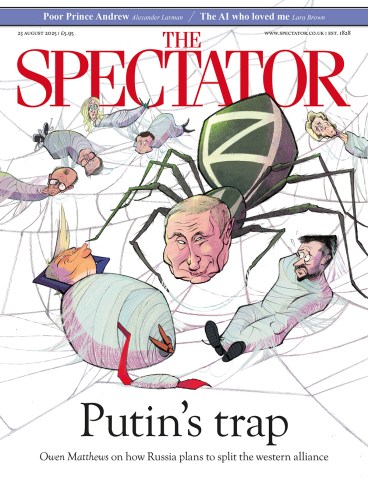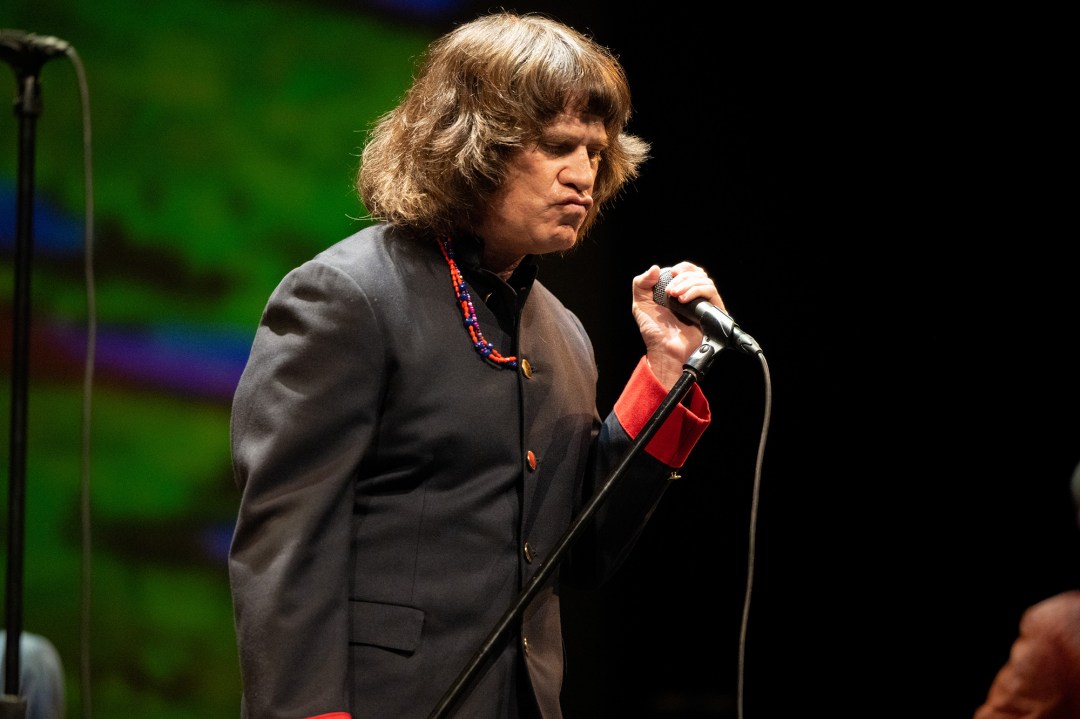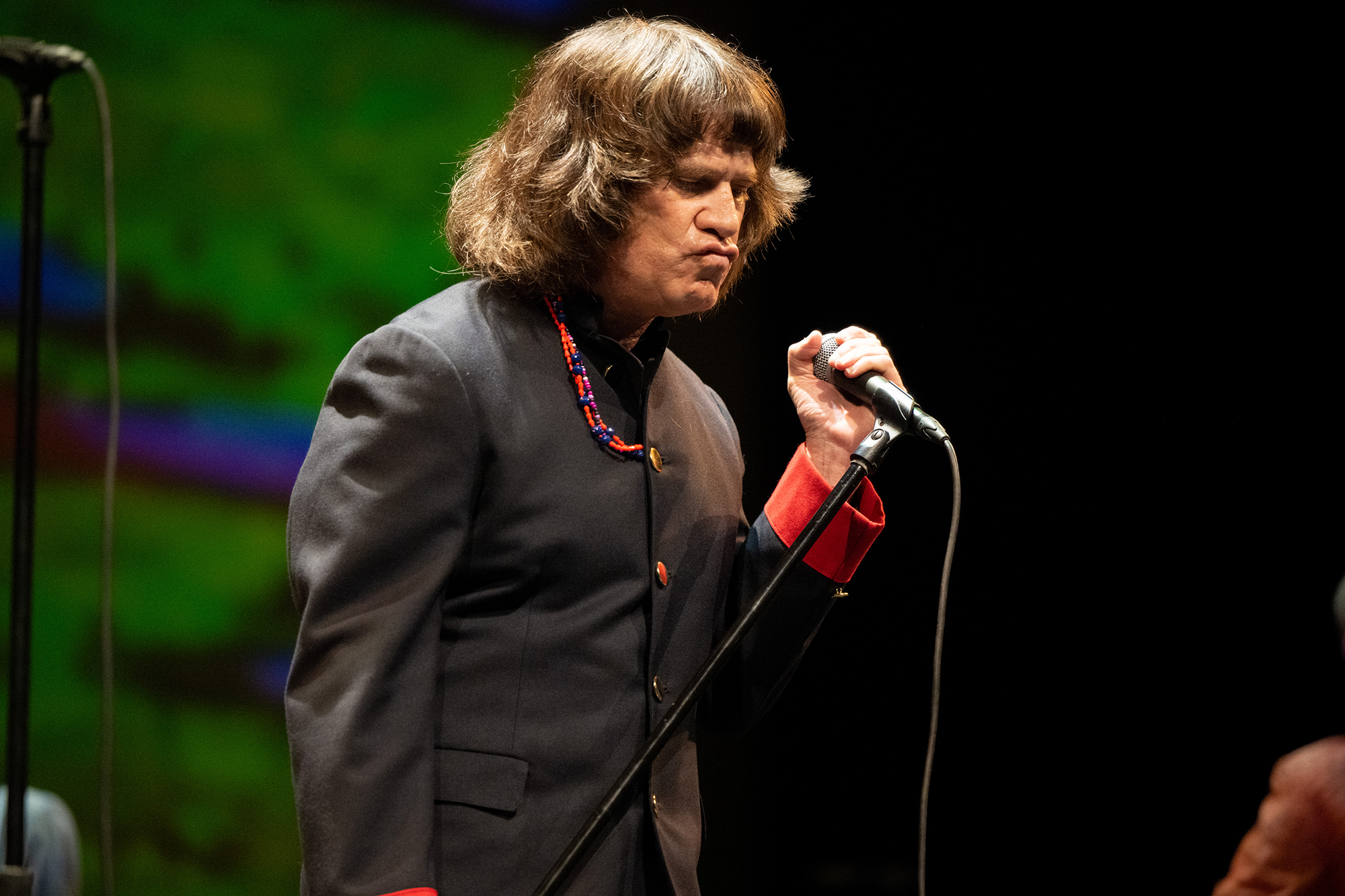
I have nothing but admiration for those men who burn a candle for the music of 1966. Partly because, like them, I believe 1966 to be pop’s greatest year, but mainly because being a psychedelic hipster requires a commitment that invites ridicule.
It’s one thing to be an ageing fella who likes rock’n’roll – sharp denim and a well-tended quiff can look just fine. And you can never really tell the age of a metalhead – they just look like a metalhead. But to wear your hair in an outgrown bowl cut, and to strut around in tight red trousers as Seeds singer Paul Kopf does, is inevitably to invite catcalls of ‘Oi, Austin Powers!’. You have to really believe in it to go through life like that.
The Seeds were a four-piece band from Los Angeles who, back in the 1960s, were among the first to bridge the gap between the new psychedelia and the hard-driving R&B known as garage punk. Today the Seeds consist of one original member – in this case, keyboard player Daryl Hooper – plus a bunch of younger musicians. That said, Hooper was a key musical part of the Seeds, and the four who joined him were no cabaret amateurs tempted by a quick buck but obsessives who wanted everything to be perfect.
This show was part of the 50th anniversary celebrations for Ace Records, the great reissue label that did so much to bring old rock’n’roll and its descendants back into circulation (and which continues to recontextualise old music with brilliant themed compilations). What’s more, this iteration of the Seeds did sound great: Hooper’s eerie organ still made ‘The Wind Blows Your Hair’ beatifically creepy; Kopf’s howls at the end of each line of ‘Can’t Seem to Make You Mine’ were magnificent.
It is primitive stuff: the Seeds’s biggest hit single, ‘Pushin’ Too Hard’, is two chords from start to finish. But primitive has its place, and even 60 years on, rammed through a big PA, this music sounded not like kitsch but like something deeply connected to the original spirit of Little Richard and Jerry Lee Lewis.
It’s kept alive by people such as Alec Palao, who was playing bass for the Seeds and was also a founder of the opening band from Crouch End, the Sting-rays, a 1980s garage band who had reunited especially to open the night. Their own set mixed covers – all by bands unfamiliar to most but legends to these few hundred (Kenny and the Kasuals, the Spades) – with a few originals: ‘Escalator’ was gloriously out of control.
Koko was a wildly ambitious booking – the top couple of tiers were closed – but this felt as celebratory as any gig packed to the rafters with excited teenagers, just older and stiffer. Partway through the Seeds’s set I noticed that the Sting-rays’ singer was just to my left, staring raptly and singing along: ‘If you got your radio, turn it on/ So I can satisfy you, girl/ So I can satisfy you.’ It was wonderful – and no one shouted: ‘Oi, Austin Powers!’
MJ Lenderman is a precious guitarist and songwriter, part of an American indie band called Wednesday, whose solo career has rapidly outstripped his day job. A couple of albums – Boat Songs and Manning Fireworks – had critics swooning and audiences swelling. Their presentation at the Roundhouse was proper dadrock; the shadow of Neil Young and Crazy Horse was inescapable in the long, lazy swells of fuzzed guitar, in the hungover thud of the drums (and the Young cover in the encore). But the twentysomethings connect to it, too. There were lots of them here, plenty wearing trucker caps to stress the affinity between I95 and the Chalk Farm Road.
Lenderman’s a passable lyricist. There are hints at strong ideas in his songs, and the occasional startling image – ‘We sat under a half-mast McDonald’s flag’ – but I’ve seen him a few times now in various settings and never come away as enthused as everyone else seems to be. At the Roundhouse I worked out why: it’s his voice, which is neither odd nor idiosyncratic enough to be a feature of its own (as Young’s is) nor strong enough to carry the melody. The addition of his Wednesday bandmate Karly Hartzman leavened things a bit, but she’s an indie singer, too, and indie-singing is not in the same league as country-singing or soul-singing.
At a certain point the singing stopped registering and all I could hear was a whining teenage boy. I am doing him a disservice because that’s not who he is or what he is singing about, but once the thought occurred, there was no dislodging it. I might well be the only person who feels this way about his voice.








Comments